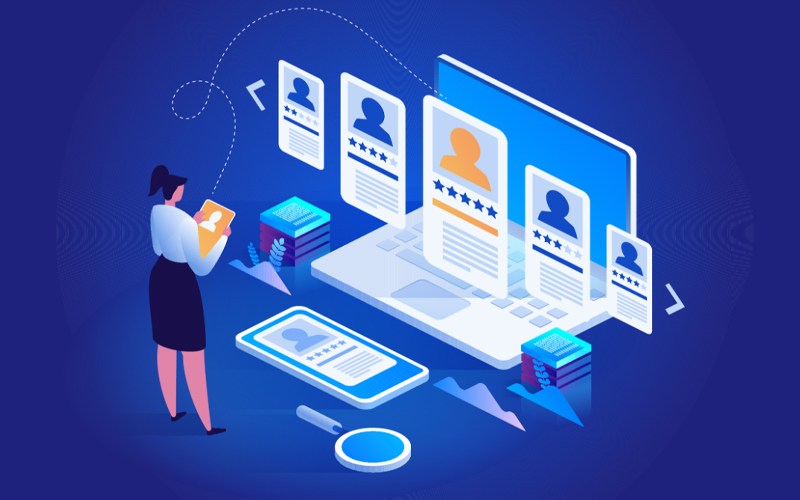A discussion about digitising an industry is incomplete without mentioning Artificial intelligence (AI), which has had far-reaching effects on many sectors, including healthcare.
By enabling personalised healthcare treatment plans, speedy disease detection, and real-time patient monitoring, AI is quickly transforming the healthcare sector. They have expedited processes, reduced costs and improved patient outcomes.
While the potential benefits of AI in healthcare are enormous, there are also significant challenges that need to be addressed.
Let us explore the top five opportunities and challenges of AI in healthcare and examine how this technology is changing the face of modern medicine.
Jump at the opportunities, Carpe Occasionem
- Enhanced medical diagnosis
- Personalised treatment plans
- Improving patient outcomes
- Drug discovery and development
- Streamlining administrativetasks
The USA sees 12 million diagnostic errors annually, with 33% leading to irreversible harm or death.
AI makes for a promising medical diagnostics tool, because of its ability to process and analyse large amounts of data accurately and quickly.
For example, a trained AI model can help identify lung cancer lesions by analysing patterns and traits associated with the disease.
AI can enable personalised treatment plans based on a patient's medical history, current condition, and other relevant factors. For example, a smart inhaler with GPS tracking can help clinicians identify a patient's asthma triggers by using the recorded location and inhaler usage information, and tailor a treatment plan accordingly, which is not possible with lab tests alone.
Healthcare professionals have hectic schedules. Take, for example, nurses working in the Intensive Care Unit (ICU). With multiple patients in critical conditions to watch over, it can be challenging to monitor everyone round-the-clock.
AI comes to the rescue in such situations. Healthcare providers can monitor patients' progress 24/7 and predict potential complications in real-time, thereby preventing hospital readmissions and possibly even averting major mishaps. This enhances patient outcomes and reduces healthcare costs.
AI can analyse drug interaction data and recommend effective drugs for specific illnesses, accelerating the process of discovering and developing more effective medications.
By training on vast chemical compound databases, AI can identify patterns and connections between biological activities, alongside factors such as drug safety, and toxicity. This enables the estimation of a compound's efficacy in treating a specific condition.
When non-value-adding, repetitive, and time-consuming administrative activities like billing, scheduling, record-keeping, and resource allocation (staffing, equipment, and facilities) are off the staff's plate, healthcare institutions can operate more effectively. Virtual assistants and AI-powered chatbots can be of significant help in this situation.
Rise to the challenges, Vincere Impedimenta
Data privacy and security
Accurate but flawed
Transparency
Expense and time
Raising AI awareness
Access to confidential patient data is crucial for training AI models, but the rise in data breaches over the years raises ethical concerns. Compliance with regulations such as General Data Protection Regulation (GDPR) and Health Insurance Portability and Accountability Act (HIPAA) is necessary to prioritise patient safety, but such checks slow down AI adoption in healthcare.
Such regulatory and ethical checks, despite being a necessity, severely slow down AI’s adoption in healthcare.
While AI can be an accurate diagnostician, it's not flawless and is susceptible to errors when applied to new populations or clinical settings that are not represented in the training data.
AI’s limitations in detecting changes in data or context can impact its learning precision. Thorough clinical validation before implementation is the only remedy for this shortcoming.
AI systems are like mysterious "black boxes". They don't explain how they came to a conclusion, which makes clinicians hesitant to trust them.
This issue is resolved by Explainable AI (XAI), however, it hasn't yet gained popularity. With more studies in this area, healthcare professionals can expect to work with sophisticated yet understandable AI models.
Annotating a single model requires about 10,000 images. This makes data processing time-consuming and expensive. Considering the legal and moral restrictions related to the use of personal health information, finding high-quality medical data is another significant difficulty. This prolongs and increases the cost of an AI healthcare project.
Healthcare providers see AI as a job threat, but this stems from a lack of understanding of its potential. AI is meant to complement, not replace, people by providing insights.
Moreover, technology can't replace empathy and the human touch. Staff also lack confidence in handling AI applications, hindering their acceptance.
Training programs to raise AI awareness can help overcome these challenges.
Cheers to better health
By 2026, the market for AI in healthcare is projected to be worth over USD 8 billion, according to Acumen Research and Consulting.
While AI has the potential to revolutionise the way we diagnose, treat, and prevent diseases, it also poses ethical, regulatory, and practical challenges that must be addressed.
As we continue to develop and integrate AI into healthcare, it is crucial to strike a balance between innovation and responsibility. By leveraging the strengths of AI while mitigating its risks, we can ensure that this technology serves the best interests of patients, healthcare providers and society as a whole.
The journey towards AI-enabled healthcare is still ongoing, but with careful planning, collaboration and innovation, a brighter future for healthcare, benefitting all, is feasible.
* For organizations on the digital transformation journey, agility is key in responding to a rapidly changing technology and business landscape. Now more than ever, it is crucial to deliver and exceed on organizational expectations with a robust digital mindset backed by innovation. Enabling businesses to sense, learn, respond, and evolve like a living organism, will be imperative for business excellence going forward. A comprehensive, yet modular suite of services is doing exactly that. Equipping organizations with intuitive decision-making automatically at scale, actionable insights based on real-time solutions, anytime/anywhere experience, and in-depth data visibility across functions leading to hyper-productivity, Live Enterprise is building connected organizations that are innovating collaboratively for the future.







